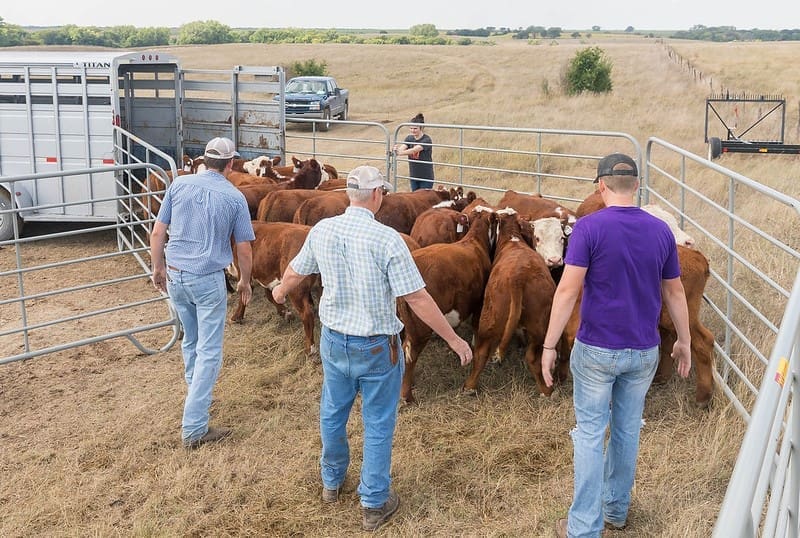Rushing the process of preparing young calves for sale and not adhering to health protocols can cause stress and lower sale weights, affecting income, according to experts from Kansas State University’s Beef Cattle Institute on a recent Cattle Chat podcast episode.
To minimize stress, proper planning is crucial. Producers should first determine the best marketing strategy for their calves, choosing a program that aligns with their management system, such as preconditioning and vaccination programs. Many special calf sales require specific vaccination types and schedules, and vaccines are most effective when administered before the calves experience stress.
In addition, reducing weight loss during transport is important. Using low-stress handling techniques and preconditioning diets can help. Exposing calves to people and machinery can ease their transition to the feeding phase and improve their performance.
Lastly, it’s beneficial to inform customers about the sale through community and social media and ensure that the driver transporting the calves is cautious, as their driving affects the calves’ condition upon arrival.










